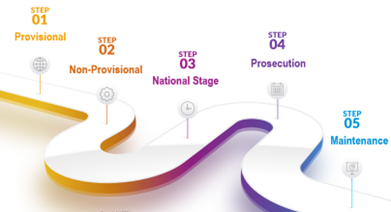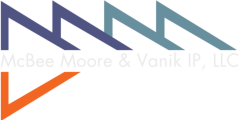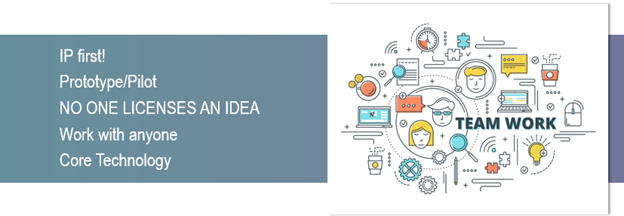
Overview
When establishing the value in intellectual property – and trying to determine where to start— it is important to take the correct steps.
Step One consists of establishing the technology that is going to be patented.
Step Two is to develop a commercialization plan that will allow for you to be able to establish market value to establish whether or not the invention has value.
Step Three is to establish your team to support the endeavor. The team should consist of inventors, business experts, and a strong team of intellectual property attorneys (whether in-house or law firm).
Step Four—often unappreciated— outline short, medium, and long term goals with a GAAP (Generally Accepted Accounting Principles) budget for each goal.
Goals
Short term goals from one day to 30 days. These are immediate and necessary steps to keep the company moving. Calls with investors, daily updates, experiments, docket reports, market reports, securing items for the company are all examples of short-term goals.
Medium term goals are measured in terms of months, e.g., one to six months. Contracts, negotiations, supply terms, are all examples of medium-term goals.
Long term goals are measured in terms of years, one to five years. It is important to keep in mind, that, some day, a “long term” goal will be come a “short term” goal, e.g., launch the commercial product, receive FDA approval for a medicine.
Team

The business team consist of your operations, commercialization, and finance team. Your business team will oversea operations (making sure stuff gets done) commercialization (making sure you have something to “put in a box and sell”), and, importantly, to secure funding.
Your legal team supports intellectual property, business structure, due diligence, and managing finances. Legal counsel, may be brought in as a founder, contract basis, or outside counsel (law firm). Having a good fit with the legal counsel is important. To avoid “problems,” your legal counsel must be able to say, “no” (often) (and to important people). Something may seem like a great idea, but be deeply, legally flawed, e.g., a new promising market is overwhelmed with regulatory uncertainty, there is no freedom-to-operate.
When building a team, implement a solid structure for success. The business structure should be flexible, simple, and cost-efficient. For example, many small companies opt for a limited liability company (LLC). LLC’s have simple management, low administrative requirements, and the ownership is flexible.1 Other structures are available and can be considered.
Keep the group small in size and highly motivated to always be working towards the company’s goals. As ideas are developing, get everything in writing, track progress, and ensure that goals are met (and funded). When designing a plan for the team, find a strict balance between equity and cash. The last part of building a team that is agile and effective is to develop an exit strategy. Always have an exit strategy, not all technology works, not all technology can be commercialized, markets collapse, be prepared!
Goods & Services
First things, first – Produce something – anything – and do it fast! Establish your intellectual property, then develop a prototype—no one licenses and idea! Next, work with anyone and develop your core technology.
When developing your intellectual property, make secrecy a priority. Use Non-Disclosure Agreements (NDAs) in all interactions, especially development stages. Use NDAs every time, for everyone, everywhere. Competitors and suppliers will be watching your every move requiring discretion (avoid public announcements, social media) for transactions, discussions, and all IP exchanges.
Mechanics of IP

- File a Provisional Patent Application. The Provisional Patent Application system at the U.S. Patent and Trademark Office allows for lower costs, lower legal requirements, rapid filing of a “placeholder” patent application. This may be changed, modified, or abandoned, within a 1 year period. The Provisional is kept confidential, unless and until it is “converted” to a Non-Provisional Patent Application. Start-Ups file lots of Provisionals. LOTS. Provisional Patent Applications do not receive examination and do not require any fees to maintain them. These may be combined into a single, Non-Provisional Patent Application.
- A Non-Provisional Patent Application “claims” priority to the previously filed Provisional Patent Application(s). Non-Provisional Patent applications may be filed with the USPTO as an U.S. Non-Provisional Patent Application, with foreign patent offices, or an International Patent Application (PCT).2
- If filed as a PCT, there is a delay until the decision deadline of which of the 156 member states, a national stage patent application is to be filed.
- Either after the National Stage, or if filed directly at the USPTO or foreign patent office, the process begins for evaluation of your patent application by the Examiner. Compact prosecution may take between six and 18 months. Extended prosecution, may take five years. During this process, you must keep your invention in mind, your goals, and how the patent claims, in their final form, serve these goals. Once approved by the Patent Office, (U.S or foreign) the patent issues.
- Every patent office requires the payment of Maintenance Fees (Annuities) to keep a patent enforceable. Failure to pay Maintenance Fees (Annuities) results in the patent expiring for failure to pay Maintenance Fees (Annuities).
Special Considerations
What is patentable and the standards for patentability are fluid. International Agreements, National Laws, and Court decisions all impact what subject matter can be patented and what the standards are. This is especially acute in biotech. Legal counsel must stay abreast of developments in legislation and case law. Always have “fall back” positions and “options” to make sure what is in your patent application is of value regards of changes in the law.
Trademarks are based on use. Think of a name. Try it out. Run clearance searches, keep an open mind. Names change, but a good trademark is forever.
Copyright plays a role in marketing material, graphic arts, and website design. Always make sure you have clearance in using graphics, art, and images. A good website design is user-friendly and distinguishes your company from the rest.
Trade Secrets play a large role in biotech industries. Most manufacturing methods and formulations involve Trade Secrets. Be clear in what is a Trade Secret and what is Patentable. Do not mix them. They are not interchangeable. Many vendors, especially in the manufacturing, synthesis, and formulation services employ Trade Secrets. Do not expect them to share the Trade Secrets with you, but you may benefit from their expert skills. Consult IP counsel on Trade Secrets and work diligently to protect them. Once a Trade Secret is lost, it is lost.
 Funding
Funding
When in the stages of building, there are four funding rounds: seed round, Series A, Series B, and lastly an Initial Public Offering (IPO). The seed round is angel investors ($100,000 – $2,000,000) a prototype, establish IP first. Series A is comprised of angel investors, private equity, venture capital ($1,000,000 – $5,000,000), commercialization, and pilot plant and to expand intellectual property.
Series B is composed of private equity, venture capital, cash out angel investors and founders. Also included in series B is full commercialization, and enforcement. IPO allows for the company to source funding in public markets, but comes with increased scrutiny and responsibility. Financing is required to get the company off the ground. With this in mind, the core technology, Goals+GAAP budget, and solid team will be heavily scrutinized by financiers.3
When looking for funding, invest in professional services, compile accounting reports and budgets, and acquire marketing materials that best showcase your intellectual property. Set aside time for meaningful conferences and meetings.
Final Thoughts
When establishing your start-up company and/or small businesses, keep your team small and close-knit. Maintain focus on your goals and keep them your top priority. Minimize any overhead that may present itself, e.g., do not pay for a “vanity address”, rather, remain at the incubator level and stay virtual if it all possible. Ensure that you and your team have a back-up plan. If you fail funding goals, a pandemic starts, have a contingency plan to keep the company alive while minimizing cost.
In the end, your success hinges most on your technology, your ability to protect it, and your ability to commercialize it. With good planning, solid technology, and favorable market conditions, your start-up can succeed!
- Always consult tax professionals when making decisions that involve tax and revenue.
- The United States is a member of the Paris Convention (1883) and Patent Cooperation Treaty (1970) that gives access to the IP Offices of (almost) every country on the planet through your priority filings at the USPTO.
- Always consult corporate and financial counsel before, during, and after raising funds for your company.
McBee Moore & Vanik IP is a small boutique Law Firm with two locations in Frederick, Maryland and Fairfax, Virginia. As an agile law firm, MMV has a special focus on biotech for small and start-up companies.


 Funding
Funding




